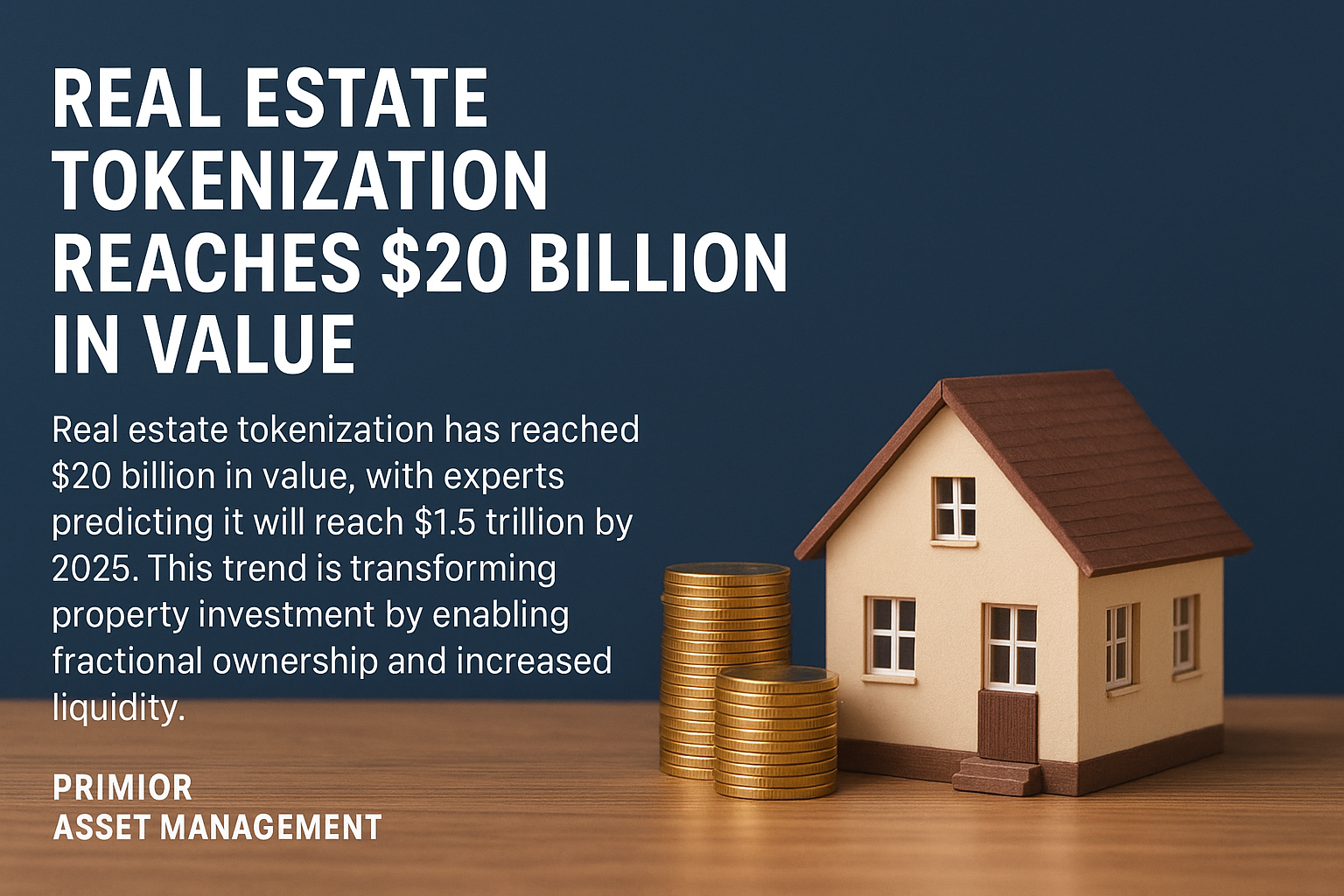The real estate industry is undergoing one of its most profound transformations in decades. With tokenization now reaching $20 billion in value, what was once a niche concept has matured into a powerful new asset class. Experts forecast that tokenized real estate could climb to an astonishing $1.5 trillion by 2025, reshaping how investors, developers, and asset managers think about property ownership.
What is Real Estate Tokenization?
At its core, tokenization takes a physical asset—such as a building, a commercial complex, or a parcel of land—and represents it as digital tokens on a blockchain. Each token corresponds to a fraction of the underlying property. This approach allows investors to buy, sell, and trade smaller portions of real estate, much like shares of a company, without having to purchase entire properties.
For decades, direct property ownership was limited to those who had the capital, expertise, and patience to manage large, illiquid assets. Tokenization eliminates many of those barriers. Through blockchain-based platforms, investors can now access high-value properties around the world with far lower minimum investments.
Why $20 Billion Matters
Reaching $20 billion is not just a milestone in dollar terms—it signals maturity. It means that tokenized assets are no longer pilot projects or experiments; they’re a functioning, scalable investment vehicle. Institutional players, family offices, and high-net-worth individuals are increasingly exploring these platforms for portfolio diversification.
Just as importantly, regulatory clarity has improved in several jurisdictions, giving more confidence to both issuers and investors. This growing legal framework underpins the trust needed for mainstream adoption.
The Road to $1.5 Trillion by 2025
Forecasts of $1.5 trillion within two years are bold, but they’re grounded in clear market drivers:
-
Global demand for alternative investments: Investors are searching for yield beyond traditional stocks and bonds.
-
Technological maturity: Blockchain infrastructure, smart contracts, and custody solutions are far more robust today than five years ago.
-
Liquidity and accessibility: Tokenized real estate offers the ability to trade or exit positions faster than traditional property deals.
This growth could democratize access to real estate investment globally, breaking down geographic and financial barriers in ways that were unimaginable before.
Fractional Ownership and Increased Liquidity
Fractional ownership not only lowers entry costs but also makes it easier for investors to diversify across asset types and regions. An investor could own tokens tied to a luxury resort in Bali, an office complex in New York, and a logistics hub in Germany—all without dealing directly with local property managers, brokers, or lawyers.
Liquidity is another game-changer. Traditional real estate transactions can take months, sometimes years. Tokenized assets, by contrast, can be listed on regulated exchanges or peer-to-peer marketplaces, allowing for faster sales and potentially better price discovery.
The Role of Asset Managers like Primior
Leading firms such as Primior Asset Management are at the forefront of this movement. By curating institutional-quality properties for tokenization, they help ensure investors gain access to vetted, high-performing assets. Asset managers also handle compliance, reporting, and operational oversight—critical for investor confidence in this emerging space.
Risks and Considerations
Despite the promise, real estate tokenization isn’t risk-free. Regulatory frameworks vary by jurisdiction, and secondary markets for tokens are still developing. Investors should perform due diligence on both the property and the platform offering the tokens, paying close attention to governance, rights, and redemption terms.
A Paradigm Shift in Real Estate Investment
Real estate tokenization represents a paradigm shift. By breaking down ownership into digital shares, it introduces a level of accessibility, liquidity, and transparency that traditional property markets could never offer. With $20 billion already tokenized and $1.5 trillion on the horizon, the next few years could redefine how the world invests in property—and who gets to participate.
For investors, developers, and asset managers alike, the message is clear: the tokenized property revolution has arrived, and its growth is just beginning.




